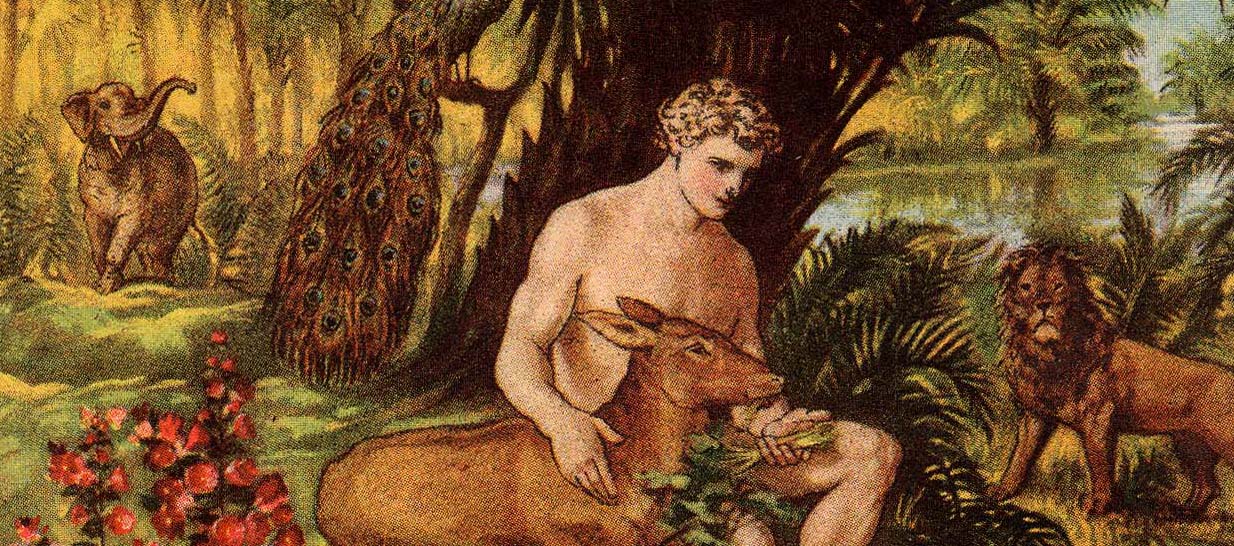Was Adam a Servant or a Son Before the Fall?
One important questions in theology is whether or not Adam was in a state of sonship prior to the fall. The answer to this question has direct implications on our understanding of God, the covenant of works, and the nature of soteriological blessings. Sinclair Ferguson has an exceedingly helpful article titled, “The Reformed Doctrine of Sonship” in Pulpit & People: Essays in Honor of William Still in which he takes up this discussion. Ferguson takes the position that Adam was a son of God prior to the fall. However, he mentions a book that has been relatively difficult to find in years past: Robert Candlish’s The Fatherhood of God. In this work Candlish sets out the opposite position, namely, that Adam was a servant–not a son–before the fall. This issue will not be resolved by simply citing Luke 3:38. We do not, in that text, have any indication whether that was a pre-lapsarian (pre-fall) or post-lapsarian relationship. Candlish suggested that Adam was merely in a state of servitude on account of the covenant of works. He would have, in light of this view, obtained sonship if he had obeyed with regard to the Tree of the Knowledge of Good and Evil (i.e. when he was tested by God and tempted by Satan). J. H. Thornwell followed Candlish and suggested that “in order that the change from the condition of that of a servant to that of a son might take place, it was necessary that the man [Adam] should prove himself faithful in the first relation.”1.
1. J. H. Thornwell The Collected Writings of James H. Thornwell (vol. 1) (Richmond: Presbyterian Committee of Publications, 1871) p. 266




So, where are you coming down? Is it necessary to Adam to have been a servant only in order to maintain the contingency of the Covenant of Works? The eternal son is always son, but the anointing of his baptism corresponds to Psalm 2, right? I guess I’m a little weak on the particulars of the Pactum Salutus. Jesus refers to the cross as his “baptism”, the inaugural event in the Eternal Covenant, not his anointing, right? So what corresponds to Communion? Thanks so much for being such a great teacher, Nick.
Robert,
I actually don’t know where I fall on this issue. I don’t think it is as easy as folk on either side make it. There is definitely a “voluntary condescension” aspect that pushes me to the “servant” side of the argument, but it does seem that Adam had a special relationship with his Maker. So, I realize that this does not answer your question, but I will continue to wrestle with it. I just wanted to set the discussion out there in order to draw people’s attention to the importance and reality of it. What are your thoughts brother?
Hi, Nick,
My feet are not firmly planted on solid ground on this issue as well, but considering the conditionality of the Covenant of Works, I tend to lean more on the “servant” view since a son, even in disobedience, remains a son by virtue of genetic affinity, but a servant is easily disposed of and driven away.
What do you think?
Nick
If the federal headship of Adam and Christ has any bearing on this issue, and I think it does though I may not be able to fully parse out how right now, I think we can take our lead from that relationship.
I don’t see why it has to be an either / or situation but sonship and servanthood are both possible. Christ, the second Adam, was both Son and Servant simultaneously. He was born a Son and commissioned to be a Servant (the point of such commission can be debated – eternally and temporally). He fulfilled the functions of a servant and of the son where Adam failed in the garden.
As a servant Adam rebelled against his Lord and Master. As a son he rebelled against his Father thus making it necessary for a Son/Servant to secure the blessings lost by Adam. Christ’s sonship differed from Adam’s in that he was the Son with whom God was “well pleased”, men were to “listen to him” (contrast with Adam who was a listener rather than one to whom others listened!
An additional thought concerning the compatibility of sonship and servanthood – in Rev 22:3 we read that God’s servants “will serve him”. (Service there is worship, Gk latreuo). Servanthood and sonship find their consummation in the New Heavens and the New Earth. There should be no problem seeing it also in Adam in the pre-lapsarian state.
A possible objection: what did Adam then have to look forward to upon completion of his probation in the COW? Confirmation in his position and standing before God.
Just some thoughts – not being too dogmatic here.
Matt
I think back to the genealogy of Jesus in Luke 3. Oh wait, it’s only in our English Bibles that they add the word “son”. In the Greek it’s just a genitive: Jesus son of … Seth, son of Adam, son of God. A simple genitive could go either way.
If it is of interest, John L. Girardeau in his Discussions of Theological Questions takes up this issue at length. He sides with Thomas Crawford (who debated Robert Candlish), and defends at length that Adam was both a son and a servant before the Fall (contrary Thornwell). I have found Girardeau’s arguments persuasive.
Warm regards,
Travis